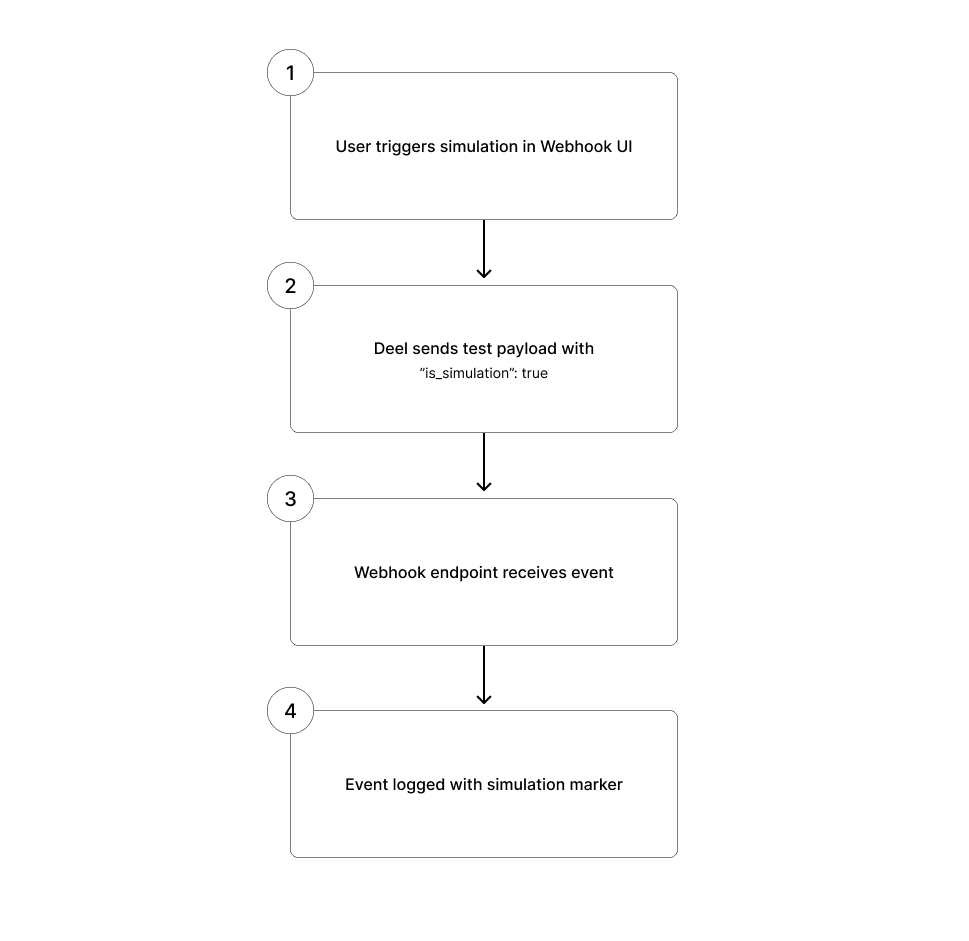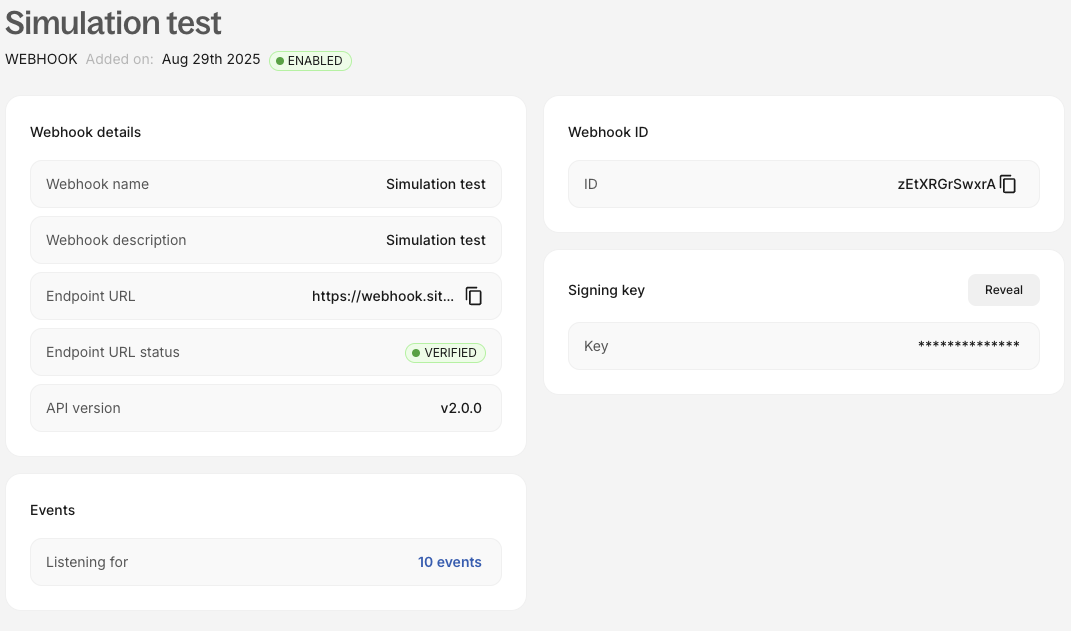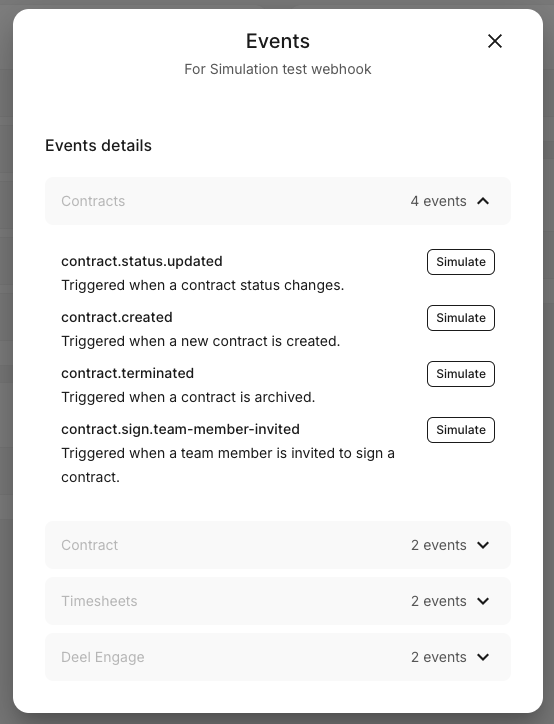Simulating webhook events
This article explains how to use webhook simulation in Deel to safely test integrations.
Webhook simulation lets you test integrations without triggering real business processes. You can send predefined test payloads to your registered webhook endpoints directly from the webhook management interface. These test events behave like production events, but are only simulated.
The benefits of webhook simulation are:
- Validate configurations before going live without affecting live data.
- Troubleshoot safely by reproducing events without triggering actual workflows.
- Ensure consistency since simulated events use the same authentication, timeout, and retry logic as production.
- Maintain transparency because test events are logged and marked with
is_simulation.
Before you begin
Review the Getting started with webhooks guide to ensure you have the necessary requirements.
How webhook simulation works
When you simulate an event, Deel sends a test payload to your configured endpoint. The request uses the same infrastructure as production events, including authentication headers and retry policies. The only difference is that the payload includes "is_simulation": true so your system can distinguish it from real activity.

Simulation attempts are rate-limited to 10 per webhook per hour.
Using webhook simulation
- Go to More > Developer and go to the Webhooks tab.
- Select the webhook you want to simulate.
- On the Events card, select the number of events the webhook is listening for.

- Expand the event type and click Simulate next to the event you want to test. A dialog appears confirming that the event simulation was successful.

- Confirm the simulation in your configured endpoint.
Example payload
Here’s an example of a simulated contract.created event. To learn more about webhook payloads and their structure, see Getting started with webhooks.
:
{
"data": {
"meta": {
"event_type": "contract.created",
"event_type_id": "a3271a64-092c-45a6-bcb9-1677c441b4fd",
"is_simulation": true,
"organization_id": "3e214829-9ad4-4a5a-81f8-491a2a79b6e4",
"organization_name": "White Label Demo",
"tracking_id": "0b39d6e2-84eb-4ad5-ac31-137c4b0993ae"
},
"resource": {
"client": {
"legal_entity": {
"email": "",
"name": "",
"registration_number": "",
"subtype": "",
"type": "company",
"vat_number": ""
}
},
"compensation_details": {
"currency_code": "USD",
"first_payment": "",
"first_payment_date": "",
"frequency": "",
"gross_annual_salary": "",
"gross_signing_bonus": "",
"gross_variable_bonus": "",
"scale": ""
},
"created_at": "2025-02-05T10:10:39.723Z",
"employment_details": {
"days_per_week": 0,
"hours_per_day": 0,
"paid_vacation_days": 0,
"probation_period": 0,
"type": "ongoing_time_based"
},
"id": "3072cm7",
"invitations": {
"client_email": "",
"worker_email": ""
},
"is_archived": false,
"notice_period": 10,
"signatures": {
"client_signature": "",
"client_signed_at": "",
"signed_at": "",
"worker_signature": "",
"worker_signed_at": ""
},
"special_clause": "",
"start_date": "2025-02-04T21:00:00.000Z",
"status": "waiting_for_client_sign",
"termination_date": "",
"title": "Software Engineer",
"type": "ongoing_time_based",
"worker": {
"expected_email": "[email protected]",
"first_name": "John",
"last_name": "Doe"
}
}
},
"timestamp": "2025-08-29T14:30:00.029Z"
}
Updated 5 months ago